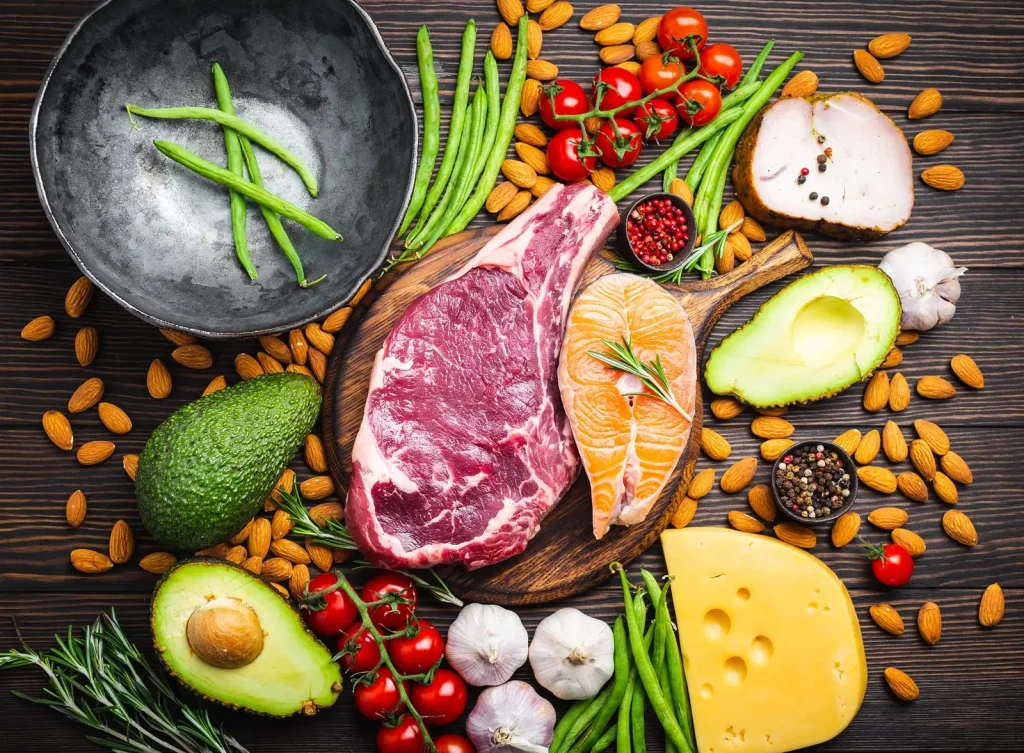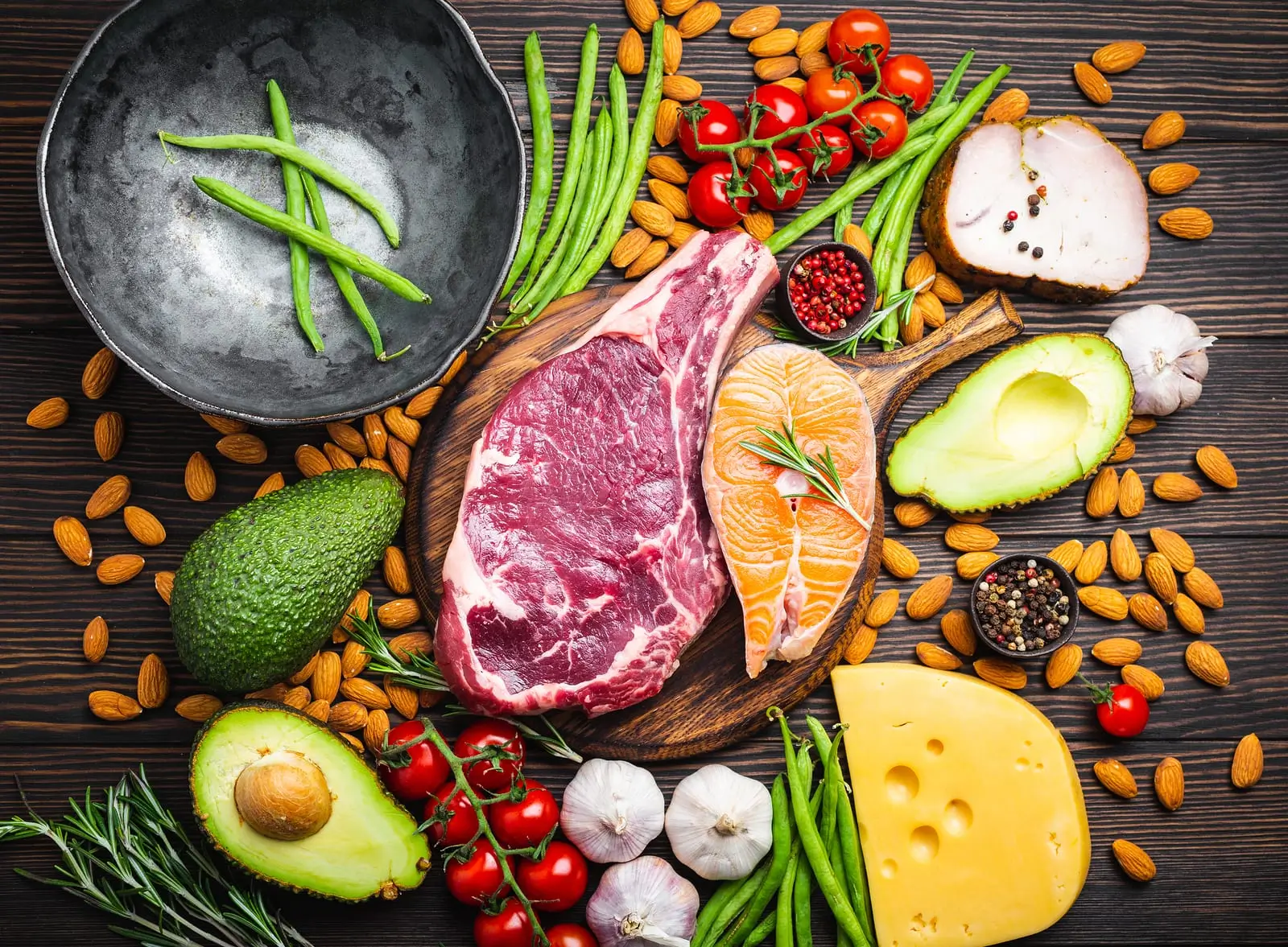Best Dinner to Grow Testosterone When it comes to maintaining a healthy body, we often overlook the importance of hormones Testosterone, in particular, plays a crucial role not only in men’s health but also in women’s well-being.
While genetics and lifestyle factors influence testosterone levels, your diet can significantly impact its production. dinneroz In this article, we’ll delve into the best dinner choices to naturally boost your testosterone levels.

Understanding Testosterone
Before we explore the dinner options, let’s briefly understand what testosterone is and why it’s essential. Testosterone is a hormone primarily produced in the testicles in men and in the ovaries in women, albeit in smaller amounts. It’s often referred to as the “male hormone,” but it’s crucial for both genders. Testosterone plays a vital role in muscle mass, bone density, fat distribution, and even mood regulation.
The Impact of Diet on Testosterone
Your diet has a profound effect on your testosterone levels. Certain foods contain nutrients that support testosterone production, while others may inhibit it. Dinner, being one of the main meals of the day, presents an excellent opportunity to incorporate testosterone-boosting foods.
The Best Dinner Choices for Boosting Testosterone
- Lean Proteins: Opt for lean sources of protein such as chicken, turkey, fish, and tofu. These foods are rich in amino acids, which are the building blocks of testosterone.
- Cruciferous Vegetables: Include vegetables like broccoli, cauliflower, and Brussels sprouts in your dinner. These vegetables contain compounds that help regulate estrogen levels, which indirectly supports testosterone production.
- Healthy Fats: Incorporate healthy fats from sources like avocados, nuts, seeds, and olive oil into your dinner. Fats are essential for hormone production, including testosterone.
- Complex Carbohydrates: Choose complex carbohydrates such as sweet potatoes, quinoa, and brown rice. These carbs provide sustained energy and help regulate insulin levels, which can indirectly affect testosterone.
Grow Testosterone Recipes for Testosterone-Boosting Dinners
- Grilled Salmon with Broccoli and Quinoa: Marinate salmon fillets in a mixture of olive oil, lemon juice, and herbs. Grill until cooked through and serve with steamed broccoli and quinoa.
- Turkey Stir-fry with Mixed Vegetables: Stir-fry lean turkey strips with colorful vegetables like bell peppers, onions, and snap peas. Season with garlic, ginger, and soy sauce for a flavorful dinner option.
- Spinach and Avocado Salad with Grilled Chicken: Toss fresh spinach leaves with sliced avocado, cherry tomatoes, and grilled chicken breast. Drizzle with balsamic vinaigrette for a satisfying and nutritious meal.
Timing Your Dinner for Optimal Testosterone Levels
The timing of your meals can also influence testosterone levels. Eating a well-balanced dinner a few hours before bedtime can help optimize hormone production during sleep, which is when testosterone levels typically peak.
Lifestyle Factors Affecting Testosterone
In addition to diet, lifestyle factors like exercise, sleep, and stress management play crucial roles in testosterone levels. Regular physical activity, adequate sleep, and stress reduction techniques such as meditation can all contribute to hormonal balance.
Supplements to Consider
While getting nutrients from whole foods is ideal, certain supplements may help support testosterone production. Vitamin D, zinc, and magnesium are commonly linked to healthy testosterone levels and can be taken as supplements if needed.
Balancing Your Hormones Naturally
It’s essential to take a holistic approach to hormone balance. In addition to dietary changes, focus on managing stress, getting regular exercise, and prioritizing sleep to support overall health and well-being.
Common Myths About Testosterone
Dispelling common myths can help you make informed decisions about your health. Contrary to popular belief, testosterone isn’t solely a concern for men, and simply increasing protein intake won’t automatically boost testosterone levels.
Consulting a Healthcare Professional
If you’re considering significant dietary changes or have concerns about your hormone levels, it’s always best to consult with a healthcare professional. They can provide personalized advice based on your unique needs and health status.
Optimizing testosterone levels through diet and lifestyle choices is within reach for anyone willing to make simple yet impactful changes. By incorporating testosterone-boosting foods into your dinner and adopting a holistic approach to health, you can support hormone balance and overall well-being.
FAQs
- What foods should I avoid for optimal testosterone levels?
- Foods high in refined sugars and processed carbohydrates can negatively impact testosterone levels.
- Can certain drinks affect testosterone levels?
- Excessive alcohol consumption can lower testosterone levels, so it’s best to consume alcohol in moderation.
- How quickly can dietary changes impact testosterone levels?
- While individual results may vary, making dietary changes can lead to noticeable improvements in testosterone levels within a few weeks to months.
- Are there any risks associated with boosting testosterone through diet?
- When achieved through diet and lifestyle changes, optimizing testosterone levels is generally safe. However, excessive supplementation or hormonal therapies should be approached with caution and under medical supervision.
- Is it possible to have too much testosterone?
- Yes, excessively high testosterone levels can lead to various health issues, including increased risk of cardiovascular problems and mood changes. It’s essential to strive for hormonal balance rather than aiming for high testosterone levels at all costs.

